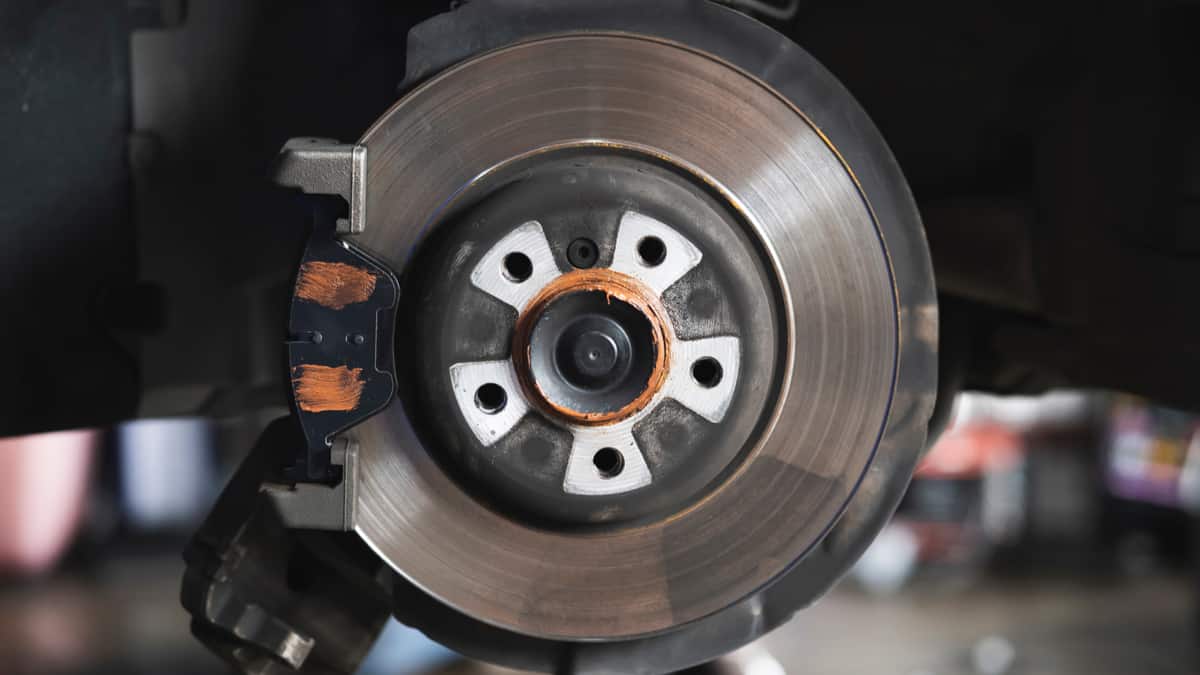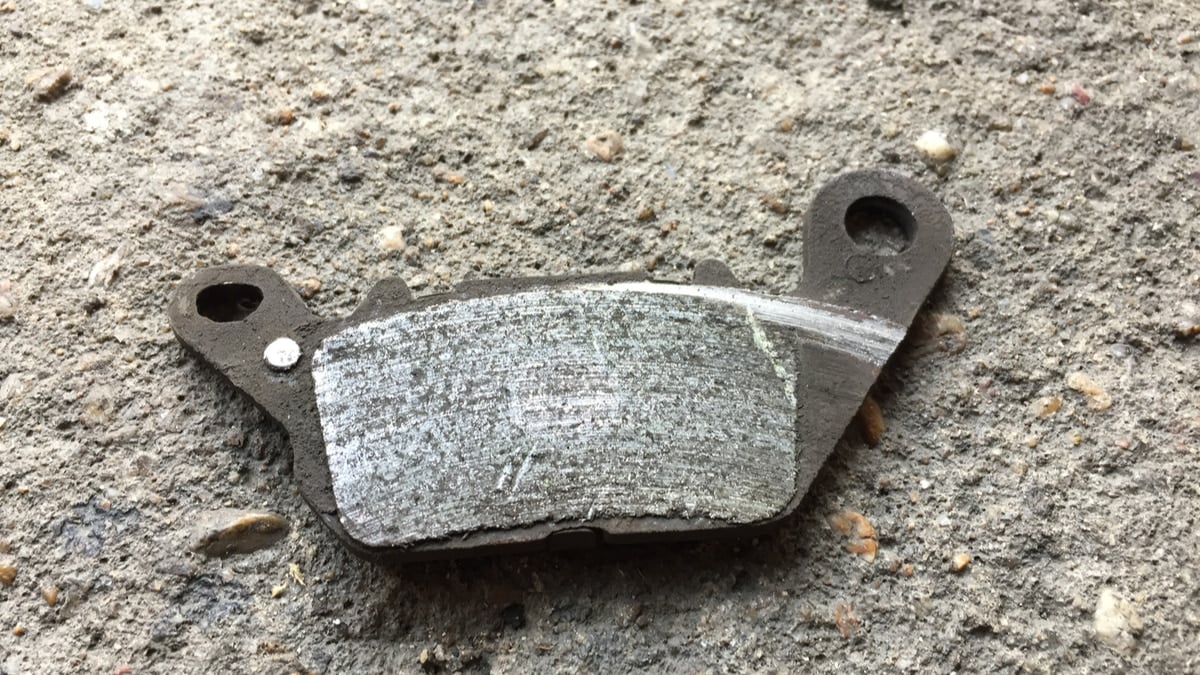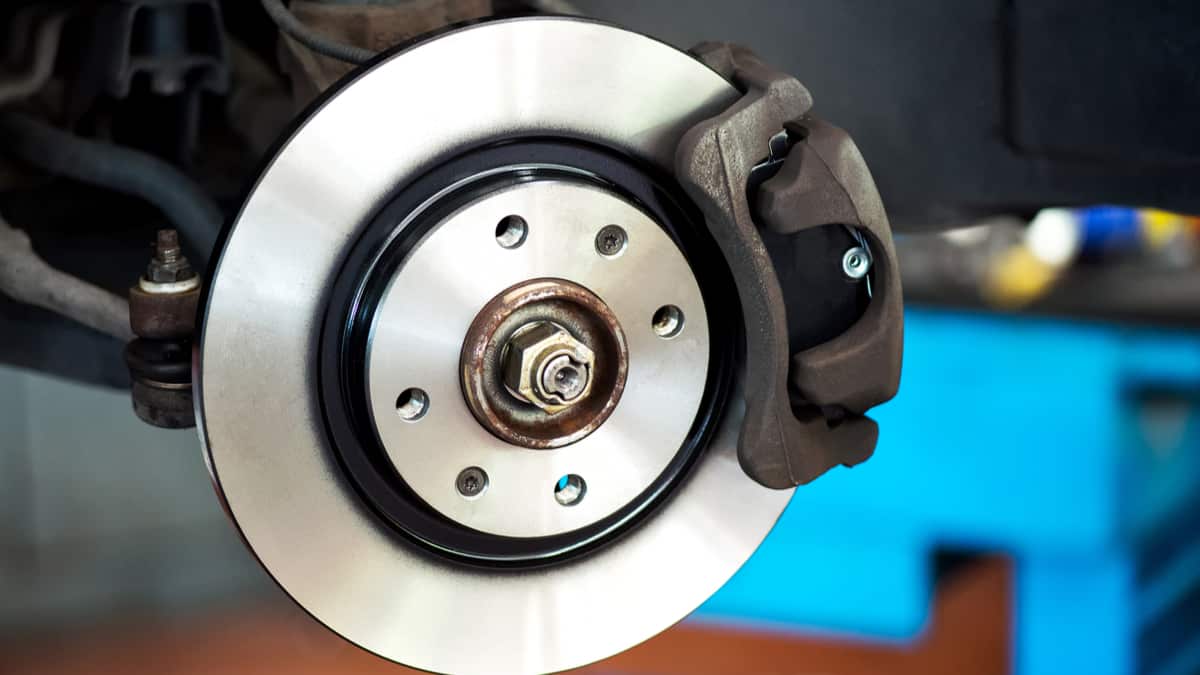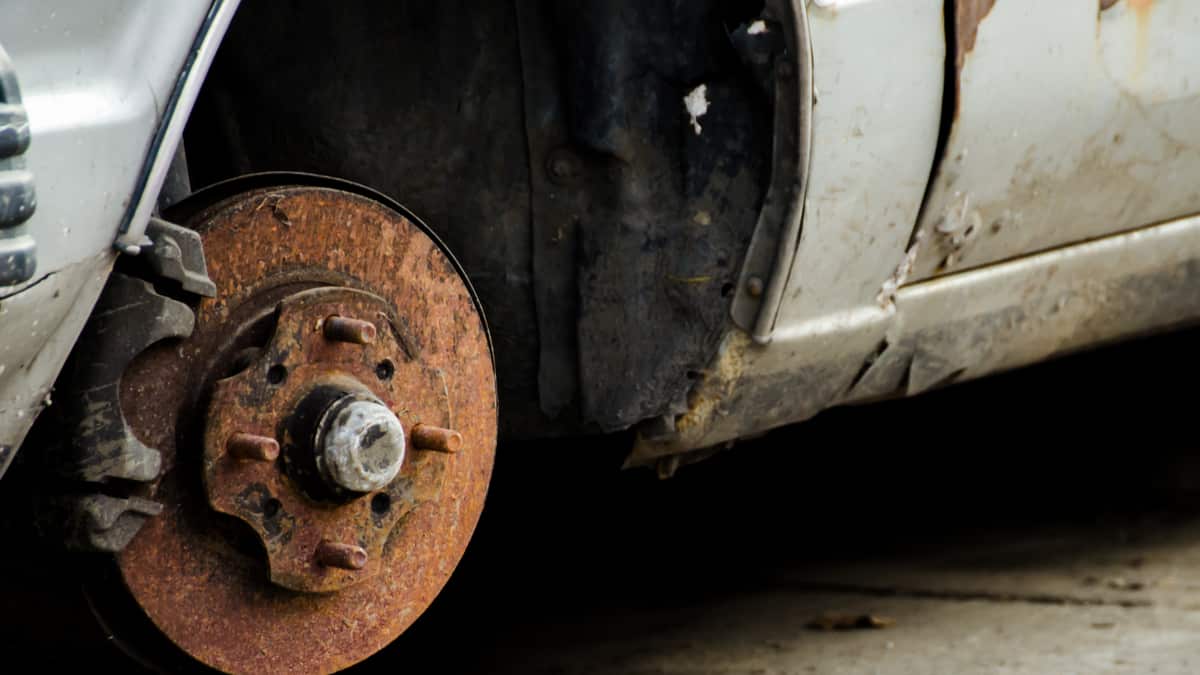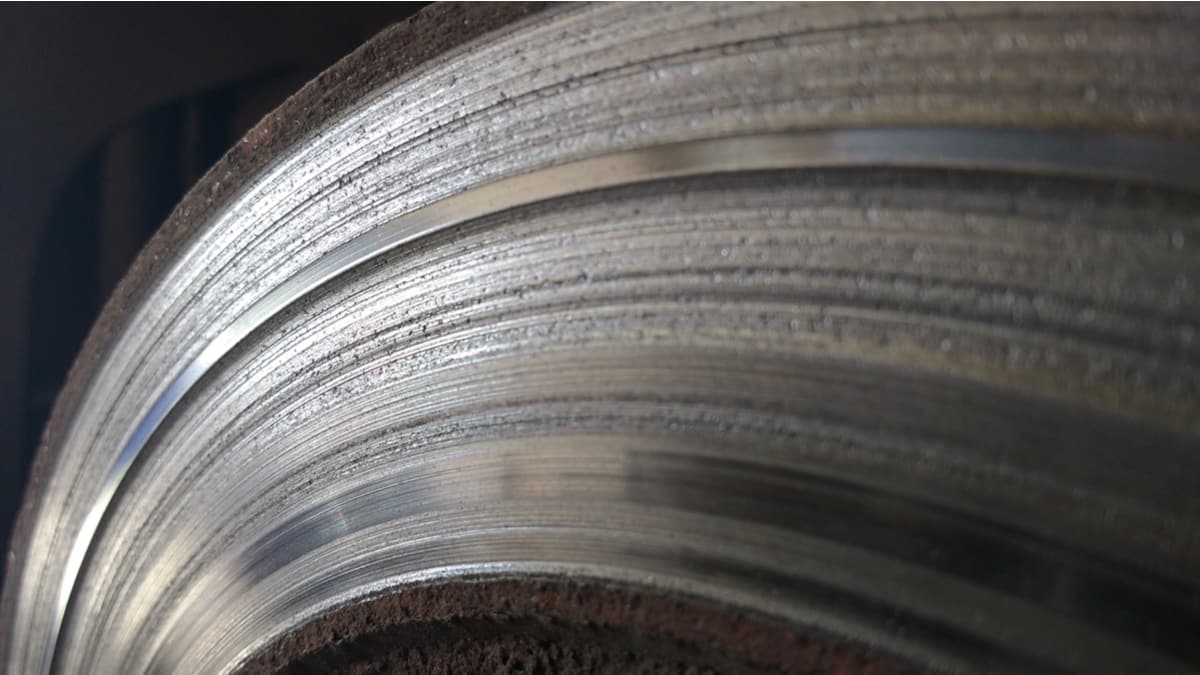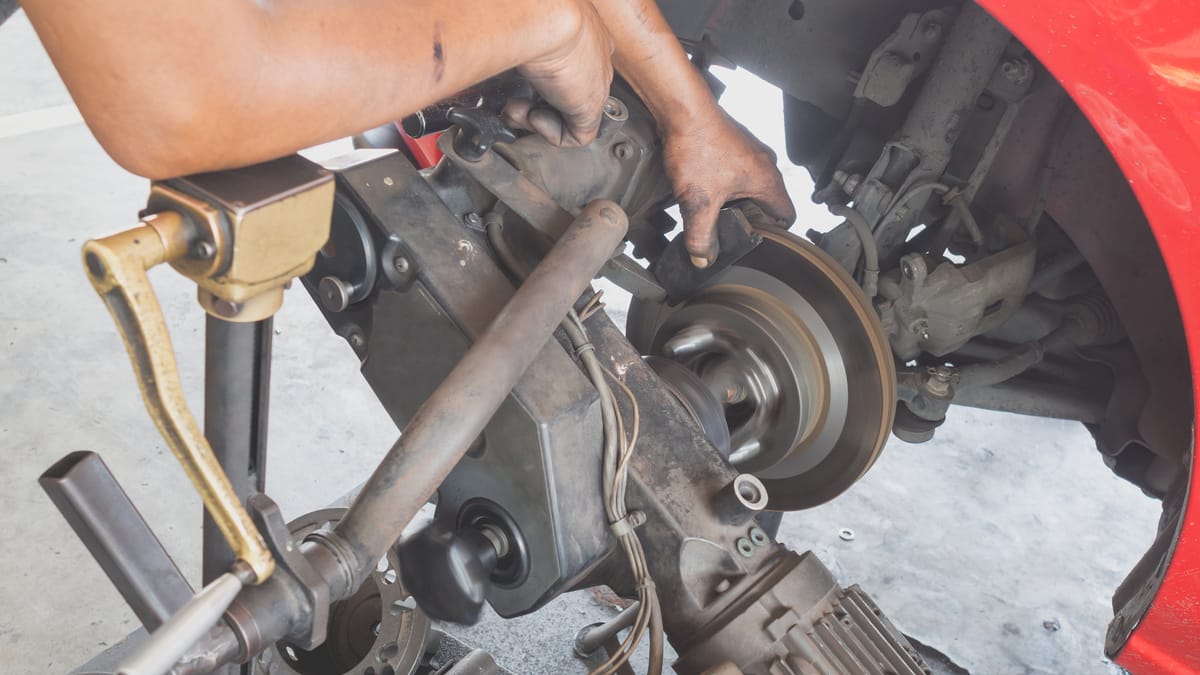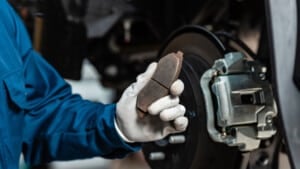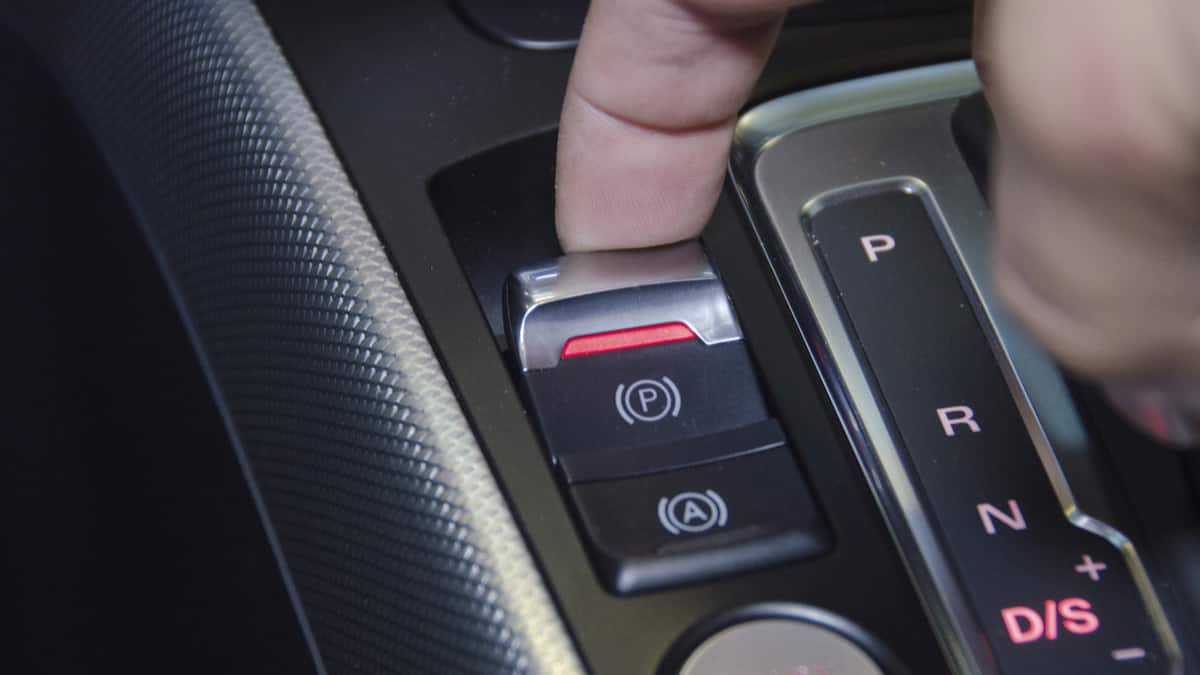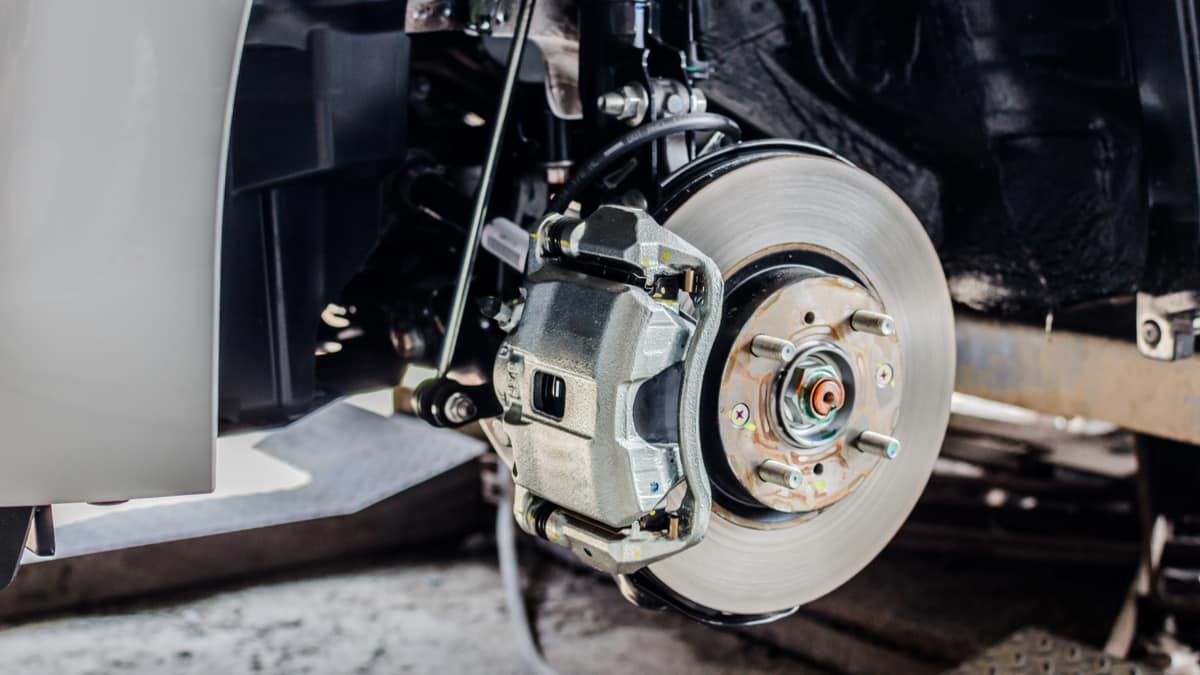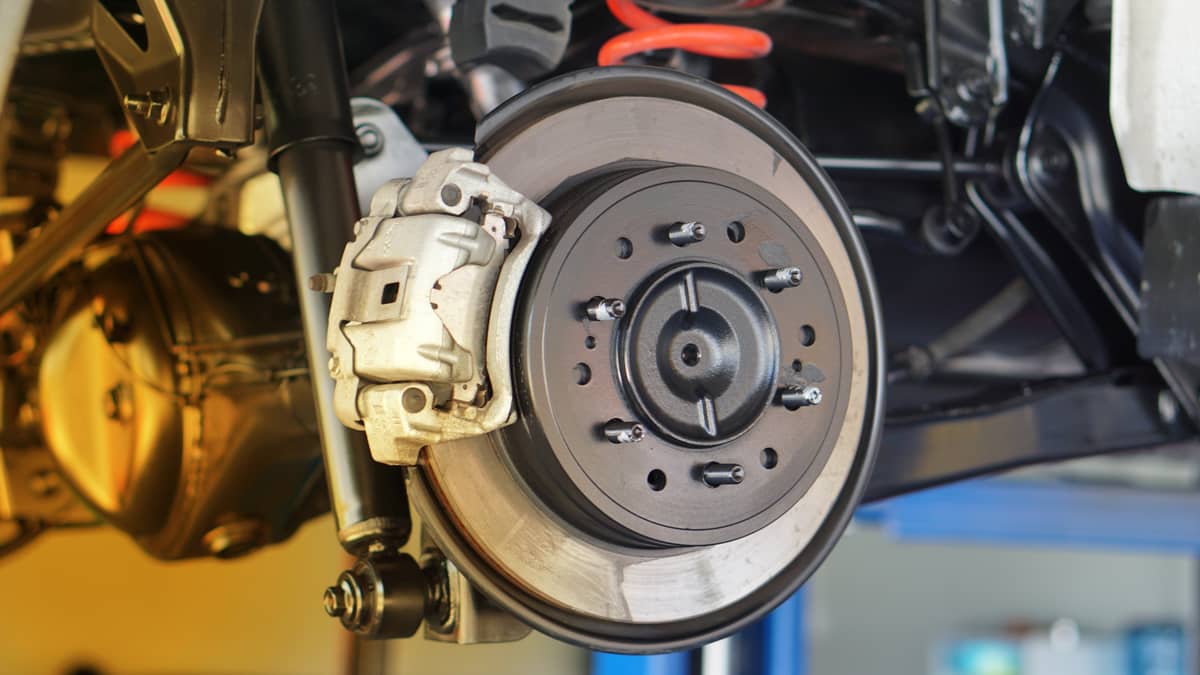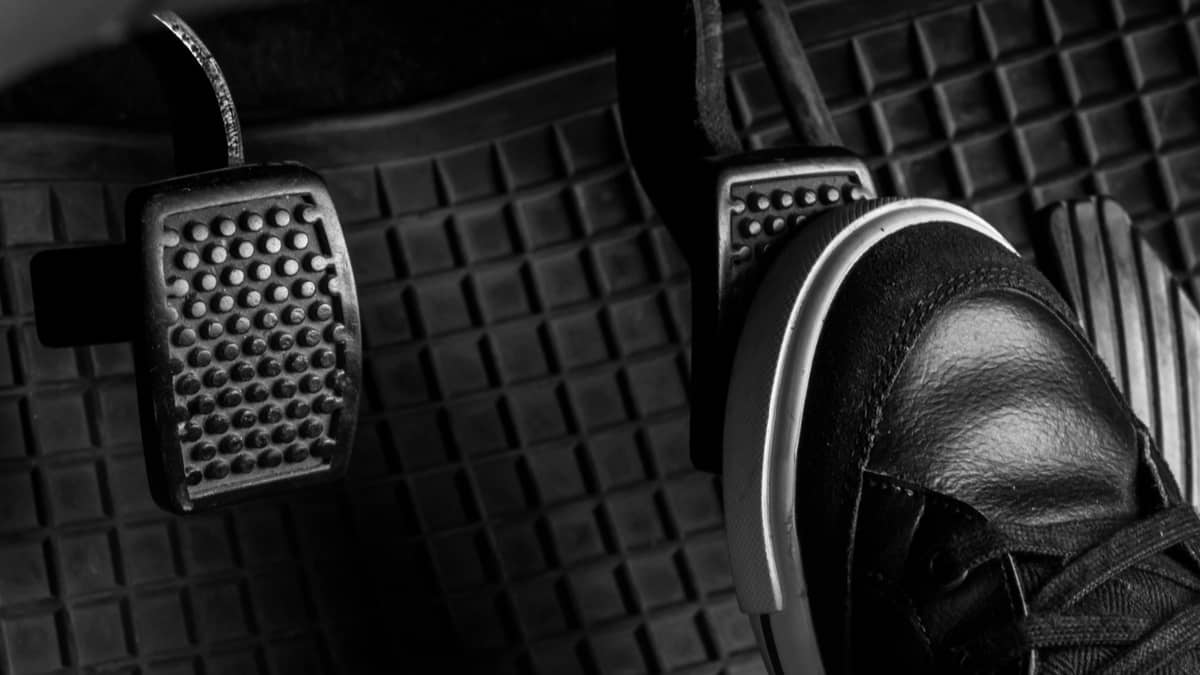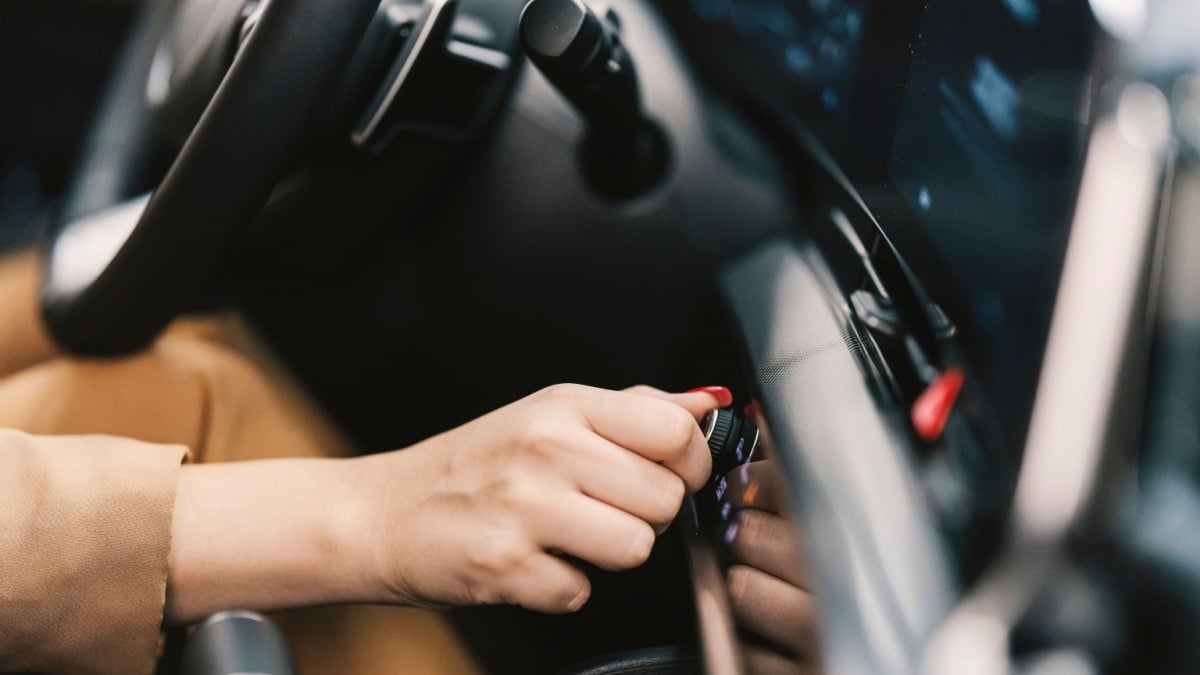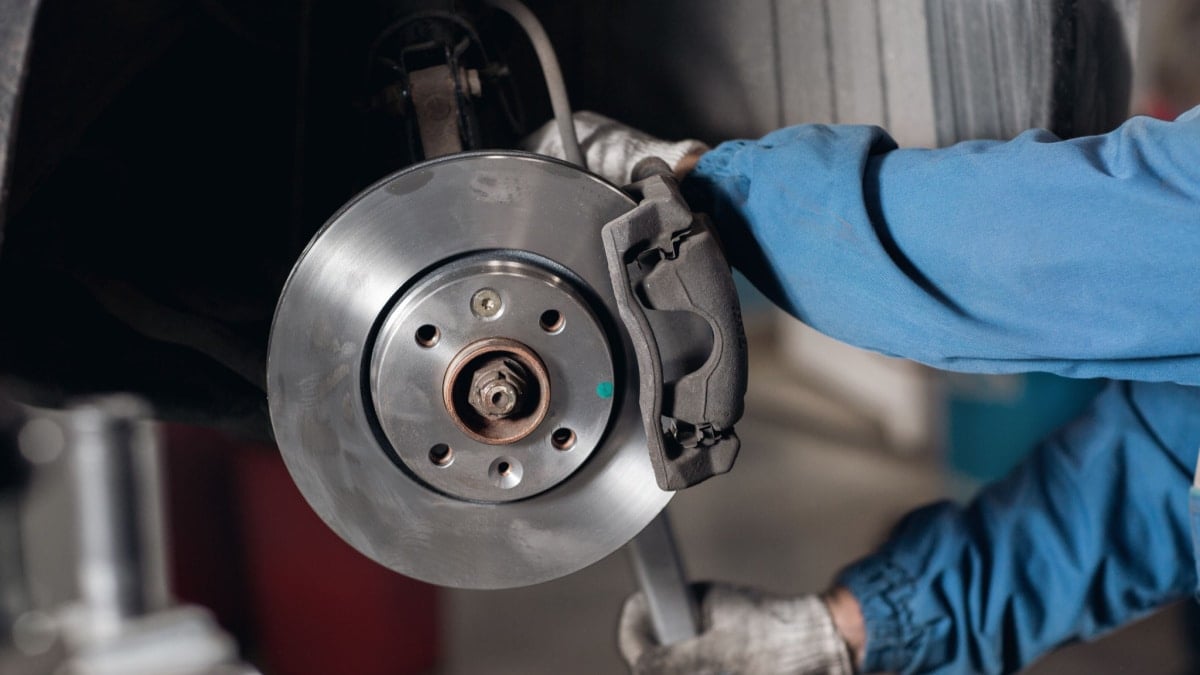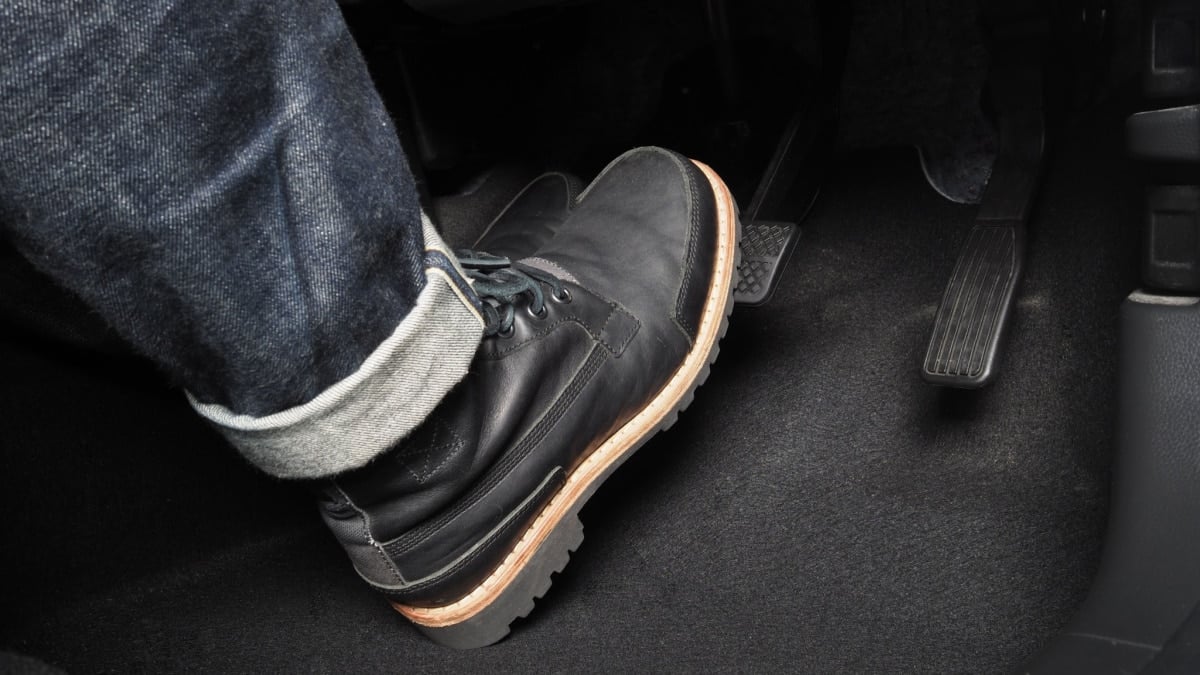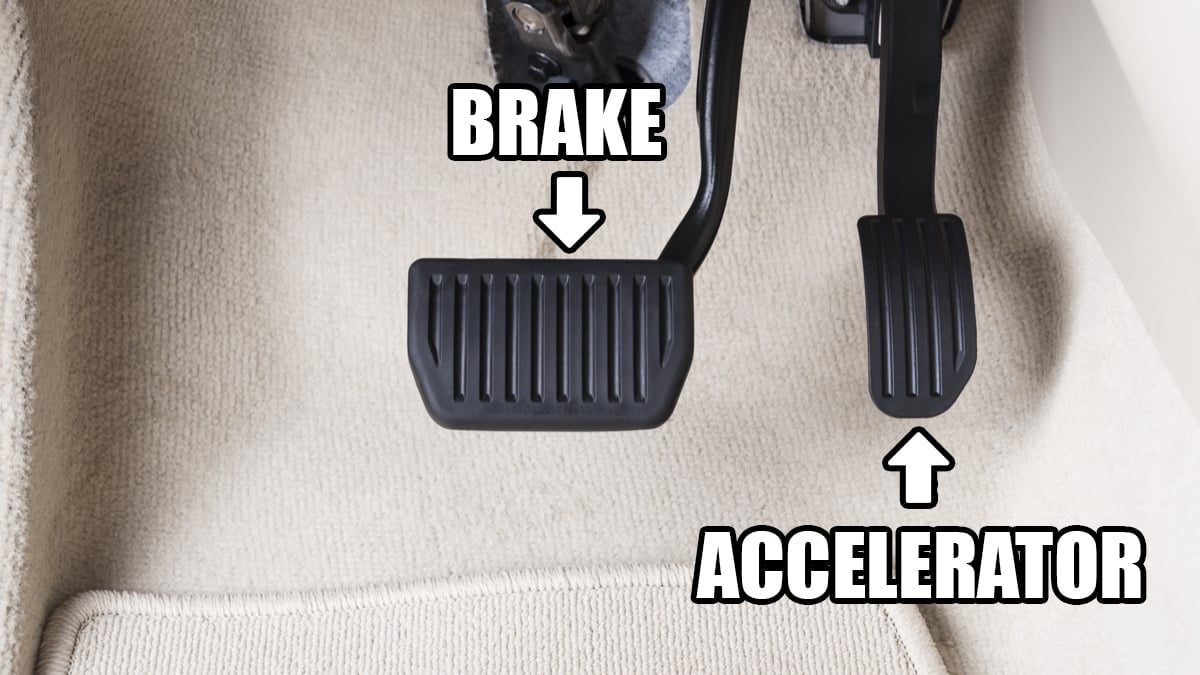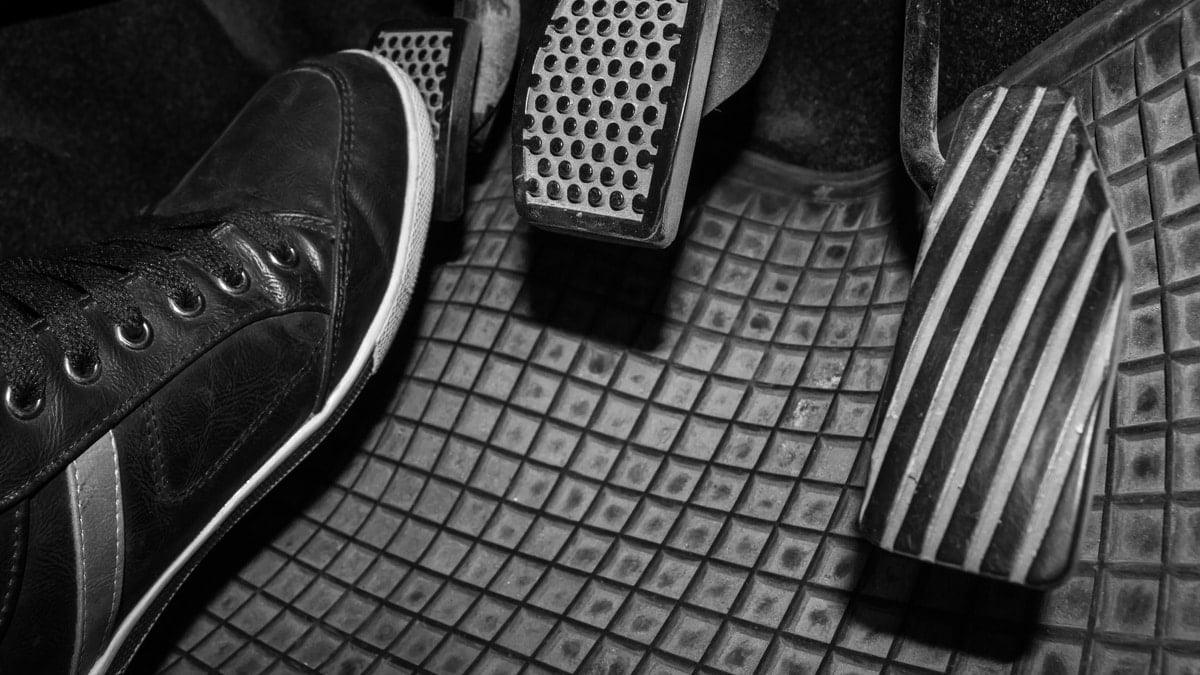When you push the brake pedal down, you want to know you have the stopping power needed to avoid an accident. However, brake noise always creates uncertainty about whether the system is working or not. What causes brake noise? It can depend on if you are traveling at low or high speeds.
In this guide, I evaluate the different types of brake noises and discuss what might cause them. I also look at how to fix the most common brake issues.
Top Causes of Brake Noise
The most common causes of brake noise are worn-out brake pads, defective rotors, or failing brake hardware. It’s also possible that you’ve let the car sit too long, and the brakes need to be used. If there’s any dirt or debris on the brakes, that can also result in strange noises when the brakes are applied.
Here is a more detailed list of the most common causes of brake noise:
1. Worn Out Brake Pads
The most common reason for brake noise is that the pads are worn out. As the material on the pad gets thinner, it’s more susceptible to making noise, especially if it reaches the wear indicators.
The wear indicators are designed to make noise when the material is getting lower. With this alert, you can change the pads before further issues occur.
RELATED: How Often Should You Replace Brake Pads? (5 Signs It’s Time)
2. Low-Quality Brake Pads
If you’ve recently put new brake pads on but are hearing a noise, it could be due to the quality of pads you’ve chosen. Brake pads are made from different materials – some much less expensive than others.
Cheap brake pads use sub-par materials that can be noisy. You could also face trouble if you opt for aftermarket brake pads that don’t hold up to OEM standards.
RELATED: Ceramic vs Organic Brake Pads (Which is Better?)
3. Worn Rotors
If you allow the brake pad to get too low, metal starts contacting the metal on the rotors. Not only will this create a grinding sound when you push the brake pedal, but it can also wear the surface of the rotor.
If you need to change the rotor with the pads, you are looking at spending much more. That’s why it’s important to change the brake pads at the first sign of wear.
If the rotors are worn, the pads will often create an edge around the brake disc which will create a squeaking noise when braking. It may be enough to resurface this edge.
RELATED: 7 Symptoms of Bad Brake Rotors (& Resurface Cost)
4. Brake Contamination
If you drive in a dirty or dusty environment, the brake components can become contaminated. If the contaminants are larger, such as tiny rocks, you might even hear grinding when you aren’t touching the brakes.
Regular car washes can help alleviate the dirt and dust on the brake system. Sometimes, driving will help reduce the contamination as well.
5. Defective Calipers
If a caliper gets stuck or isn’t operating correctly, you could hear a grinding-type sound. This noise can occur when braking and when you aren’t trying to stop. It will also come with other symptoms, such as pulling to one side.
There’s also the chance that the caliper screws aren’t properly lubricated. With any of these situations, it’s important to have it looked at right away.
6. Broken Shims
The brake pad shim is made from a thin rubber material or metal material. It sits between the brake pad and caliper to fill the gaps that would otherwise create noise.
However, when the shim wears, it can allow for movement that can cause a grinding noise. You may also hear knocking occurring when you brake at lower speeds.
7. Car Parked Too Long
If your car has been parked, you might hear some strange brake sounds when you first start driving. This issue is more likely if the car has been sitting in bad weather.
Water vapor can lead to rust and corrosion of the brakes. That’s why it’s important to store your car in a garage if it won’t be driven.
Different Brake Noises
1. Squealing
While squealing can be annoying, it’s not normally an indication of something serious. In fact, squealing commonly occurs when the brakes become contaminated.
Whether you have left the car to sit for an excessive amount of time, or if the brakes have gotten dirty, a little driving might be all that’s needed to end the squeal. Once the brakes are used a little, the noise should stop.
2. Squeaking
Squeaking brakes is often the first sign of wear. As the brake pad starts to wear and make contact with the rotor, you will hear squeaking when you apply the brakes.
However, squeaking can also occur if you purchase cheap brake pads. With the sub-par materials, you are more likely to hear strange brake sounds when you push on the pedal.
RELATED: New Brakes Squeak? – Common Causes & How to Fix it
3. Grinding
Any grinding sound should be cause for alarm. If you hear a grinding noise, you want to visit the repair shop immediately.
Grinding usually occurs when the brake pad has gotten so low that it is causing metal-to-metal contact. Continuing to drive like this could cause massive damage and will inhibit the ability to stop the vehicle.
RELATED: Grinding Noise When Braking? (Here’s How To Fix it)
How to Fix Brake Noise
1. Drive the Vehicle
If the noises occurred after having the car parked for an extended amount of time, you want to try driving for a little to see if the condition improves. This is also the case if the car was just parked during a rainstorm.
In some cases, the moisture just needs to be dried off, which happens from braking. Otherwise, if there is dirt or contamination, a little braking should help to improve the pad condition.
2. Inspect Entire System
If the noise isn’t caused by moisture or contamination of the brakes, you want to perform a complete inspection. Check the pads, rotors, hardware and every aspect of the system to determine what’s wrong.
At this time, it’s also wise to take a look at the brake fluid. While it’s unlikely this is causing your issues, it’s still wise to make sure that the fluid is topped off and looks clean.
3. Replace Brake Pads
Take a look at the brake pads to see what the condition is. If there are signs of wear on the brake pads, you want to replace them right away.
Make sure you do this at the first sign of wear. Otherwise, you might be replacing the rotors as well.
4. Tighten Loose Parts
If the caliper, pads, or rotor are wiggling, it’s important to tighten up the hardware for a secure fit. There might even be a missing bolt or clip that should be replaced.
When hardware is to blame, you might also notice vibration accompanying the brake noise. However, a quick replacement is all that’s needed to restore the brakes to normal function.
5. Replace Brake Rotors
If the brake rotors are damaged or too thin, they need to be replaced. Continuing to run new brake pads on a worn rotor will only lead to the pads wearing out prematurely.
In some cases, you can have the rotor resurfaced. This simple step is cheaper than replacing it and helps you get more life out of the existing equipment.
Categories: Brakes, Troubleshooting
